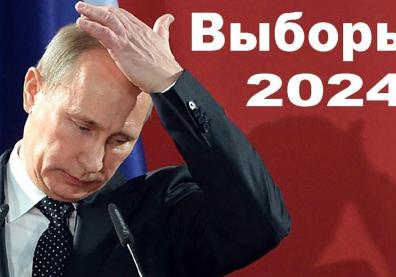Post-Soviet States Observatory breakfast: "Russia's March 2024 presidential election: a Putinism of war?"
The Centre de Recherches Europes-Eurasie-CREE (Inalco) and Catherine Poujol, Director of the Observatoire des Etats Post-Soviétiques, are pleased to invite you to the Observatoire des Etats Post-Soviétiques breakfast entitled: "The March 2024 presidential election in Russia: a Putinism of war?".

Speakers
- Jean Radvanyi, Professor Emeritus at Inalco (CREE) and author of Russie, Un vertige de puissance (La Découverte)
- David Teurtrie, Senior Lecturer at ICES, associate researcher at CREE and author of Russie, le retour de la puissance (Dunod)
- Igor Delanoe, Deputy Director of the Observatoire Franco-Russe, coordinator of the dossier devoted to Russia in the journal Etudes Internationales (2021)
- Jean-Robert Raviot, Professor at Paris-Ouest University and author of Le Logiciel Impérial Russe (L'Artilleur)
The debate will be moderated by
- Taline Ter Minassian, Professor at Inalco (CREE)
Description of the scientific event
What are the domestic and foreign issues at stake in the Russian presidential election, the first round of which will take place from March 15 to 17, 2024? Putin, who has been in power since 2000, is in the running for a third consecutive presidential term. While there seems to be no doubt as to the outcome of the election, the context of Russia's war in the Ukraine puts at stake not only the legitimacy of Putin himself, but also the deeper legitimacy of "war Putinism" on the international stage.
This morning conference on March 22, after the announcement of the first results, will provide an opportunity to take stock of the various issues involved in legitimizing this election in the context of the most appalling war to have been waged in Europe since the Second World War. The possible regional and social nuances of this election will also be analyzed.
The Observatory of Post-Soviet States
The Observatory of Post-Soviet States (OEPS), directed by Catherine Poujol and Taline Ter Minassian, works on research and analysis of regional reorganization processes in the post-Soviet space, media monitoring of political, economic and geopolitical news from post-Soviet states, and the study of heritage and architecture in these states.
The OEPS coordinates regular scientific activities, and publishes works, some of which have become veritable tools for understanding the "post-Soviet transition".
The OEPS continues its monitoring and analysis work in the form of "Petits déjeuners" devoted to the political, economic and geopolitical news of the post-Soviet states. Based on the principle of a media watch, the aim is to invite an expert to speak on a subject relating to current events in the post-Soviet states. Organized at a regular rate of around once every two months, these breakfasts reach a wide audience: academics, experts and business circles.